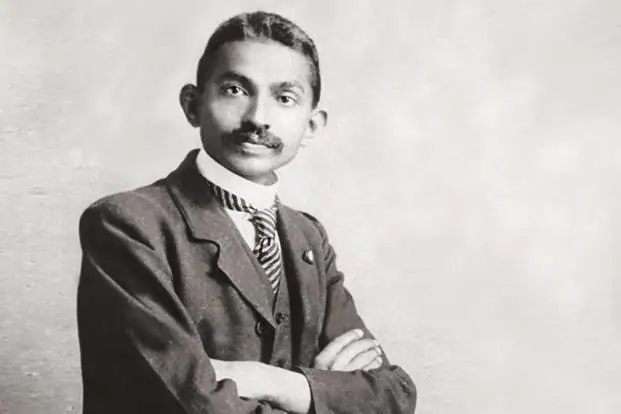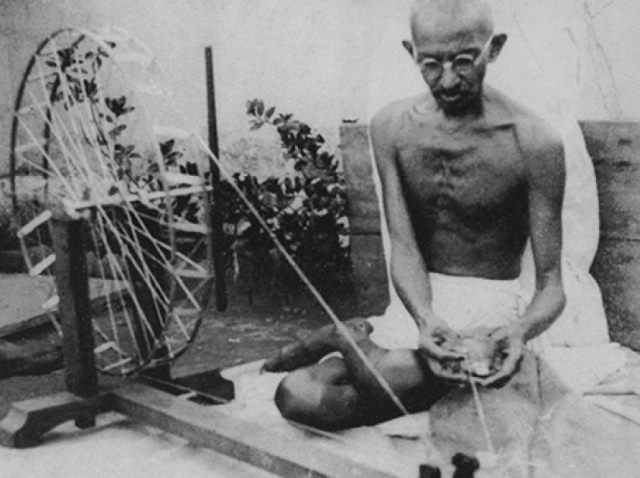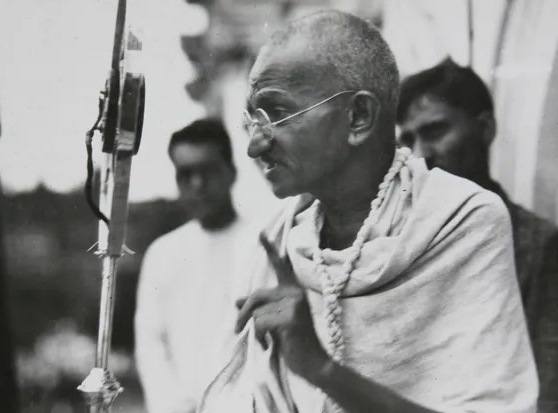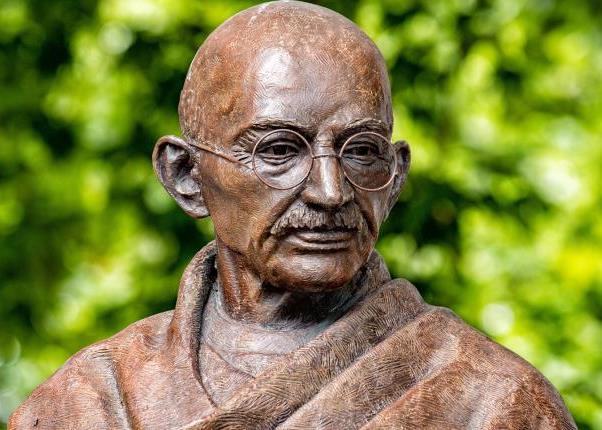Mahatma Gandhi, also known as the “Father of the Nation” in India, was one of the most influential figures in modern history. He is celebrated for his philosophy of nonviolent resistance, which he used to lead India to independence from British colonial rule.
But his teachings went far beyond politics and freedom struggles; Gandhi’s ideas on simplicity, self-discipline, and spiritual development continue to inspire people around the world today.
In this article, we will delve into the life and teachings of this remarkable leader and explore the legacy he left behind.

Early Life and Education
Mohandas Karamchand Gandhi, popularly known as Mahatma Gandhi, was born on October 2, 1869, in Porbandar, a coastal town in the western Indian state of Gujarat. His father, Karamchand Gandhi, was a high-ranking official in the court of the local ruler. His mother, Putlibai, was a deeply religious woman who significantly influenced Gandhi’s life and teachings.
Gandhi received his early education at a local school where he learned reading, writing, and arithmetic. As a child, he was shy and introverted and loved reading books on Hindu mythology and Indian history.
He was deeply influenced by his mother’s religious beliefs and her practice of fasting and other spiritual practices.
In 1881, at 12, Gandhi was married to Kasturba Makhanji, a girl of his age. Their parents arranged the marriage by the prevailing customs of the time.
Despite the early marriage, Gandhi continued his education and enrolled at the Samaldas College in Bhavnagar in 1887 to study law.
In 1888, at 19, Gandhi sailed to England to pursue further studies in law a year after his father passed. His mother allowed him to go abroad on the condition that he would not touch meat, alcohol, or women. Gandhi agreed to these conditions and took a vow of celibacy, which he upheld for the rest of his life.
Innovative Tech Solutions, Tailored for You
Our leading tech firm crafts custom software, web & mobile apps, designed with your unique needs in mind. Elevate your business with cutting-edge solutions no one else can offer.
Start NowLife in England and the Struggle With Racism
In England, Gandhi experienced significant culture shock. He struggled to adjust to the cold weather and the different customs and traditions of the country.
Despite the difficulties, he excelled in his studies and completed his law degree in 1891. Gandhi returned to India the following year and set up his legal practice in Bombay.
However, Gandhi’s early years as a lawyer were not successful. He struggled to find clients and felt disillusioned by the legal system, which he believed was corrupt and unjust. In 1893, he got an opportunity to work as a legal advisor in South Africa.

This trip to South Africa would be a turning point in Gandhi’s life. While traveling on a train from Durban to Pretoria, he was forcibly removed from a first-class compartment. This was despite having a valid ticket.
The incident, which resulted from racial discrimination against Indians, deeply affected Gandhi, who resolved to fight against such injustices.
Mahatma Gandhi and His Political Activism in South Africa
Mahatma Gandhi arrived in South Africa in 1893 as a young lawyer on a one-year contract. He expected to return to India after completing his contract. But he ended up staying in South Africa for more than two decades.
Upon arriving in South Africa, Gandhi was confronted with the harsh realities of discrimination and racism against Indians.
The South African government had passed several laws that restricted the rights and freedoms of Indians. This included the requirement to carry a passbook at all times, which was a precursor to Apartheid.
Gandhi became involved in the struggle for the rights of Indians in South Africa. As such, he founded the Natal Indian Congress in 1894 to promote their interests.
He used his legal expertise to fight against discriminatory laws and policies, but he soon realized that legal means were not enough to bring about change.
In 1906, Gandhi organized a mass protest against the Asiatic Registration Act. The Act required all Indians, Chinese, and other Asians in South Africa to always register and carry identification documents.
The protest, which preceded his later satyagraha campaigns, involved burning registration certificates and defying the authorities’ orders.
Gandhi’s nonviolent resistance and civil disobedience philosophy emerged from his experiences in South Africa. He believed that individuals could peacefully resist unjust laws and policies without resorting to violence. He also saw nonviolent resistance as a way of appealing to the oppressor’s conscience and creating social change.
Gandhi’s campaigns in South Africa were not without challenges and setbacks. He was arrested several times and faced violence and intimidation from the authorities and white settlers. However, he remained steadfast in his commitment to nonviolence and continued to inspire others to join the struggle.
Return to India and Political Leadership
Mahatma Gandhi returned to India from South Africa in 1915 after spending over two decades fighting for the rights of Indians in South Africa. He returned to a country struggling under British colonial rule, with widespread poverty, inequality, and discrimination.
Seamless API Connectivity for Next-Level Integration
Unlock limitless possibilities by connecting your systems with a custom API built to perform flawlessly. Stand apart with our solutions that others simply can’t offer.
Get Started
Fortunately, Gandhi’s return marked the beginning of a new chapter in his life. He became a political leader and launched a campaign for India’s independence.
Gandhi’s arrival in India was met with great excitement and anticipation. He was already well-known in India as a champion of the rights of Indians in South Africa. So, his return was seen as a sign of hope for the country’s future.
The Struggle for Independence
Following his return, Gandhi immediately immersed himself in the struggle for independence, organizing protests and mobilizing people around his philosophy of nonviolent resistance.
Gandhi’s political leadership was marked by his commitment to nonviolence and his ability to mobilize people from all walks of life.
He believed that the struggle for independence should be based on nonviolent resistance and civil disobedience, and he used these tactics to challenge British colonial rule. He organized mass protests, boycotts, and strikes, encouraging people to resist British authority peacefully.
One of Gandhi’s most significant campaigns was the Salt March in 1930. The British government had imposed a tax on salt, which significantly impacted the poor, who relied on salt for preserving food. Gandhi saw the tax as a symbol of British oppression and launched a campaign to challenge it.
He organized a march from his ashram in Ahmedabad to the coastal town of Dandi, where he and his followers broke the law by making their own salt from seawater. The campaign attracted worldwide attention and marked a turning point in India’s struggle for independence.
Again, Gandhi’s political leadership was not without challenges and setbacks. He was arrested several times, and many of his followers were jailed or killed. However, he remained committed to nonviolence and continued to inspire people with his message of peace and unity.

Mahatma Gandi and His Philosophical Teachings
Mahatma Gandhi’s return to India from South Africa in 1915 marked the beginning of his political leadership and a turning point in his spiritual and philosophical teachings.
He returned to India with a renewed sense of purpose and a deeper understanding of the role of spirituality in social and political change.
Gandhi was deeply influenced by his upbringing in a Hindu household and his exposure to Jainism and other religions during his time in South Africa. Mahatma Gandhi believed that spirituality was not separate from politics but, rather, an essential element in the struggle for justice and freedom.
His spiritual teachings were grounded in the idea of ahimsa or nonviolence. He believed that nonviolence was a tactic and a way of life, rooted in compassion and respect for all living beings.
In addition, he saw nonviolence as a powerful tool for social and political change, and he used it to challenge injustice and oppression in India and beyond.
Truth and Self-Discipline
Gandhi’s spiritual and philosophical teachings were not limited to nonviolence. He also emphasized the importance of truth, simplicity, and self-discipline in one’s personal and political life.
He believed that living a simple and truthful life would equal to achieving inner peace and happiness. And that self-discipline was necessary for developing the strength and resilience needed to overcome challenges and obstacles.
Transform Business with Custom CRM & ERP Solutions
Elevate your operations with a CRM or ERP tailored for you. Let’s build the perfect solution that others can't replicate—crafted to match your business's needs like no other.
Get Started
At the end of the day, Gandhi’s return to spiritual and philosophical teachings impacted his political leadership. He saw politics as a means to achieve social and spiritual transformation. And he used his political campaigns as opportunities to teach and practice his spiritual principles.
Besides, he believed that political action should be grounded in a deep sense of morality. He also emphasized that political leaders should lead by example, living and acting by their values and principles.
Gandhi’s teachings on nonviolence, civil disobedience, and social justice inspired a generation of leaders and activists, from Martin Luther King Jr. to Nelson Mandela. His philosophy of ahimsa or nonviolence has become a powerful symbol of peaceful resistance worldwide.
Moreover, Gandhi’s impact was felt globally, and his nonviolent campaigns for Indian independence inspired similar movements in other countries. His commitment to nonviolence, peace, and unity continues to resonate with people of all ages, backgrounds, and cultures. He remains an inspiration for those fighting for justice and freedom today.
Additionally, Gandhi was committed to social justice and equality for all people. He fought against the inequalities that were present in India at the time. His commitment continues to inspire people around the world today to fight for a more just society.
Before you go…
Hey, thank you for reading this blog to the end. I hope it was helpful. Let me tell you a little bit about Nicholas Idoko Technologies. We help businesses and companies build an online presence by developing web, mobile, desktop, and blockchain applications.
We also help aspiring software developers and programmers learn the skills they need to have a successful career. Take your first step to becoming a programming boss by joining our Learn To Code academy today!











